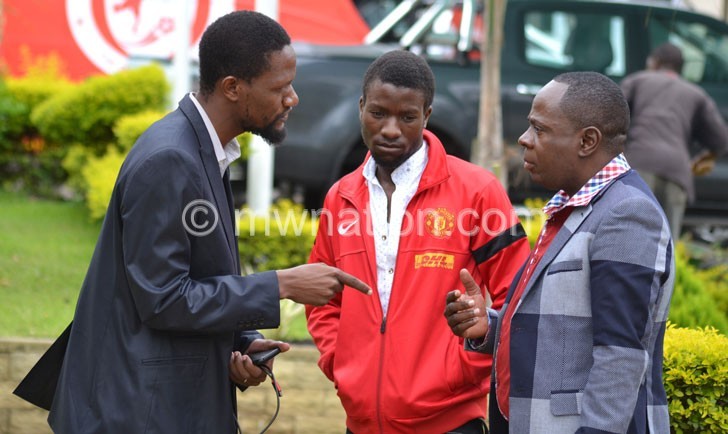Big guns faulted
Top Super League clubs have come under fire for letting their squads be dominated by poached players, a trend analysts and football administrators argue is weakening other teams and defeating Club Licencing System (CLS) principles.
CLS demands that all clubs in the Super League should have reserve teams where they nurture their players. However, a bulk of players in top teams Silver Strikers, Be Forward Wanderers and Nyasa Big Bullets were poached from small teams.

In the ongoing transfer market, the three clubs are also busy signing players from small Super League teams.
So far, the Nomads have signed six players namely Dan Kumwenda, William Thole, Peter Cholopi (Azam Tigers), Mischeck Botomani and Dennis Chembezi (PremierBet Wizards), Blessings Tembo (Silver) and Niikiza Aimable (Bullets); Bullets have roped in Righteous Banda (Civil Sporting Club), Patrick Phiri (Wizards) and Precious Phiri (Tigers) while Silver have taken on board Lazarus Nyemera (Mzuni FC), Mphatso Philiemon (Blue Eagles) and Jack Chiona (Dwangwa United).
Reacting to the trend, Dwangwa United team manager Dave Mwandira described the situation as a setback in the development of football.
“It is sad that big teams don’t want to develop their own players. This is clearly a breach of club licencing principles and there must be a way to stop this trend. Let all clubs focus on nurturing their own players,” he said.

Mwandira, whose team has already lost star player Jack Chiona to Silver Strikers, warned that if the trend continues, it will weaken competition and force some small clubs into extinction.
“One day we will realise that Blantyre has two teams only in the Super League because all players from the city’s other teams will be poached. Look at Azam Tigers now; every season it loses all its best players to Wanderers and Bullets,” he said.
Football analyst Peterkins Kayira also condemned the big clubs for their buying appetite saying it is a major shift from the country’s football foundations.
“We are at a shocking point where the top teams are dominated by players that were poached from other Super League teams. This was never the case in the past when teams used to take players from their academies,” he said.
Kayira called on football authorities to formulate a policy that will ensure that every team has players promoted from the reserve sides.
“These players must not just be in the squad but should also be given game time. Previously, Wanderers, for example, used to hand six games each year to the promising youth players. This was a way of exposing them,” he says.
“If there is no such a policy this trend will continue and it is football that is going to suffer because weaker teams will get weaker each passing season.”
Tigers chairperson Sydney Chikoti said the top club’s monopoly on the player transfer market is perpetrated by the financial challenges haunting small clubs.
“Every team wants to keep their best players but, in the end, those teams with massive sponsorship will always come to woo the best players,” he said.
But Chikoti said the trend was killing the talent of many players as they just rot on the substitutes without game time.
“The biggest setback is that we are wasting talent because some of these players poached by the so-called big teams do not play. They end up being de-motivated and end up losing their confidence,” he said.
Silver Strikers general secretary Thabo Chakaka-Nyirenda admitted that the top teams’ syndrome of poaching players was not healthy for football development.
“It’s not fair to football and we need to do some soul-searching. It is not on for teams to be ignoring the talent we are nurturing through our youth development systems,” he said.
Nyirenda recalled that the big teams built strong squads by scouting players from lower league or non-league outfits, a system he said can be re-established.
“Previously, all the big clubs used to tap talent from rural areas or their reserve teams. Former Bullets defenders Peter Mponda and Afiki Sikelo were products of such systems. Silver also succeeded with players such as Atusaye Nyondo, Russell Mwafulirwa, Zwange Gondwe who were not bought from Super League teams. We can revert to this and still do better,” he said.
However, soccer analyst George Kaudza-Masina said there is no need for ‘small’ teams to lose their sleep over the situation.
“The way the so-called big teams are spending on the market is not necessarily need-based, but it’s more of a competition among the three teams. Their spending is more to do with the demands and pressure from their respective supporters and this does not translate that they will be successful.
“As for the other teams, much as they might not have the spending powers on the market, they have always been going for raw talent and, hopefully, this is what they are doing silently without making much noise and if they plan well, they could succeed,” he said.





